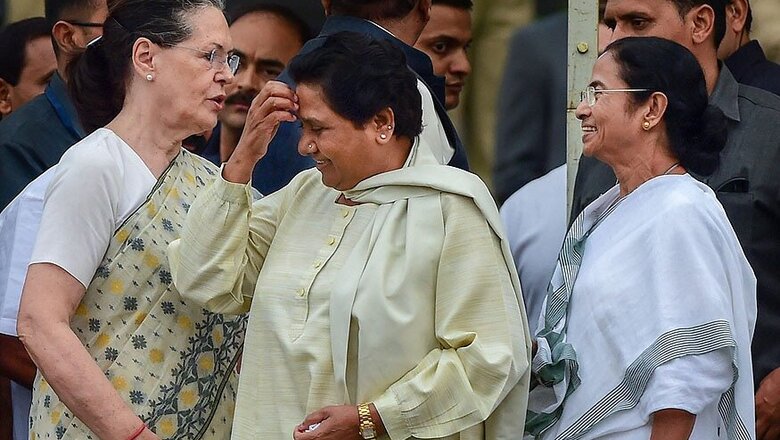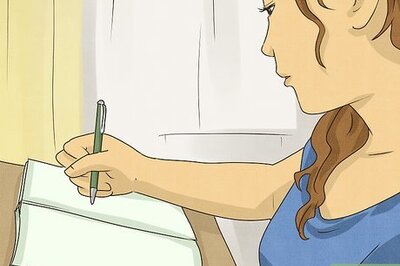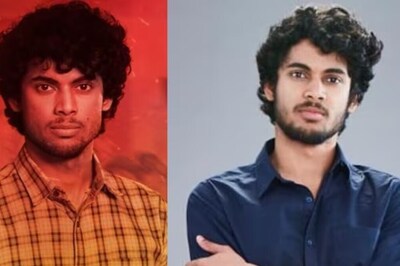
views
New Delhi: It’s no ordinary day in Indian politics when three women politicians take the centre stage.
On a day when a galaxy of politicians landed in Bengaluru for the swearing-in ceremony of the JD(S)-Congress coalition government headed by HD Kumaraswamy, it was former president of the Indian National Congress Sonia Gandhi, Bahujan Samaj Party supremo Mayawati and West Bengal Chief Minister Mamata Banerjee who stole the show.
Mamata's words, "Jo hamse takrayega, chur chur ho jayega (Whoever dares to fight with us will be decimated)”, just hours before the ceremony were probably an indication of what’s coming ahead.
Today’s picture perfect moment was when the three leaders — Maya, Mamata and Sonia — shared the limelight together, hugging each other and sharing the joy. This was a historic moment in the chapters of Indian politics.
Ahead of Kumaraswamy’s oath-taking, Sonia Gandhi and Mayawati held hands and talked to each other like they were long-lost friends. When they were heading to the stage, Sonia asked the former civil aviation minister Ajit Singh to take a step aside and invited Mayawati to come ahead. They, then, took the stage and Trinamool Congress leader Mamata joined them as well.
This came in the backdrop of a disheartening, yet common statistic — only 3 percent of the newly elected legislators in Karnataka are women.
One of the slogans of PM Narendra Modi, when he started off his campaign for the state election was, “Beta, Beti Ek Saman (Son, Daughter are alike)”. Despite this, the BJP fielded only six female candidates. Congress had 15 and JDS just four.
Together, all parties fielded just 25 female candidates, comprising barely over 8% of the total number of contestants. This, despite these political parties’ pitch being that women were central in their approach to governance.
But the numbers are no surprise. It’s the same every election, and it every state.
Politicians across parties make long, glorious speeches on women’s safety and empowerment. Every election season, the same politicians turn stingy when it comes to fielding women candidates.
Rashmi Bahuguna, who runs an organisation called Suresh Bhakti Foundation that helps in children’s education in Gujarat had to contest as an independent candidate after both the parties refused to give her ticket during the state's assembly polls.
In an interview to News18.com, she had said, “I went to Amit Shah’s house, his PA stopped me. He asked me to come back the next day. When I went back, he asked me to leave again.”
Meanwhile, Rahul Gandhi too disappointed her by never responding to the numerous emails she had sent.
A study conducted by Inter-Parliamentary Union ranks India at 149 out of 193 countries in terms of women’s representation in the lower house of Parliament (Lok Sabha) as of July 1, 2017.
Even countries like Rwanda, Burundi, Zimbabwe, Iraq, Somalia, Saudi Arabia, Nepal, Pakistan, Bangladesh, Fiji and Ghana rank higher than India. Even in the Rajya Sabha, the representation of women stands at a meagre 11.1%.
At a time like this, watching the three women politicians share the stage is definitely a sign of hope.
Political analysts are busy trying to solve the puzzle of the 2019 Assembly Elections. Can the opposition maintain its unity heading into 2019? Can they come under a single-umbrella to form a national-level alliance? Yes, there may be too many questions on that front but the biggest question is if this is the beginning of women politicians taking the centre stage?



















Comments
0 comment